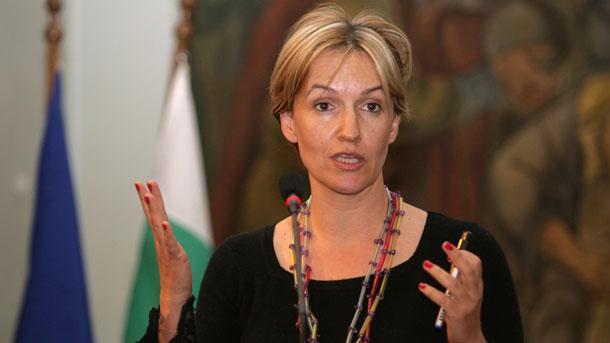The world is an operating system whose errors must be deleted, says Bill Gates. One of the problems of the European operating system regards the fact that the Old Continent will need some 900 thousand IT experts by 2020. According to data of the European Commission, the people who work in the IT and the telecommunications field are only 3.4% of the total workforce in the European Union. Peoples’ interest in making a career in the IT sphere has been dwindling recently and the number of students with a degree in Computer Science has been constantly going down since 2006. The deficit of personnel in the IT sector is huge across Europe, Bulgaria making no exception. What is the solution to this problem?
The European commission has committed itself to this issue and the Grand coalition for Digital Jobs Initiative aims at addressing the issue regarding the lack of high-quality IT experts in Europe. The National Digital Coalition in Bulgaria bearing the key name DNA also became part of the larger European initiative. “In our view, it is really a matter of DNA and how we manage to implement this code on all levels in Bulgaria, so our economy and people become more competitive”, says the founder of the coalition Gergana Passy. However, the truth is that our digital world hides many uncertainties and there are fears that the current life and business models are subject to changes. However, future is already here and it is digital
We live in a digital world and Bulgaria is popular with its youngest and best IT experts.
 “It is very important to me, because it places Bulgaria among the most progressive nations”, says in an interview for Radio Bulgaria Gergana Passy. “Of course, agriculture and tourism are also very important to this country. However, education is the most important of all. It is important to see what each one of us can do. Europe is also worried about the shortage of personnel in the IT sphere. There are nearly six million unemployed people in the continent and meanwhile the institutions estimate that there will be some 900 thousand vacant well-paid job positions in the IT sector by 2020 which will require highly-qualified staff. In fact, the digital economy demands from everyone to possess some digital skills, in order to make a career. According to latest surveys, over 40% of the Bulgaria population lacks basic digital skills. In 2020 all people must be able to use the social networks, use professional software and teach interactive lessons, no matter if they are doctors, teachers or journalists. This is the purpose of our coalition”, Gergana Passy further adds.
“It is very important to me, because it places Bulgaria among the most progressive nations”, says in an interview for Radio Bulgaria Gergana Passy. “Of course, agriculture and tourism are also very important to this country. However, education is the most important of all. It is important to see what each one of us can do. Europe is also worried about the shortage of personnel in the IT sphere. There are nearly six million unemployed people in the continent and meanwhile the institutions estimate that there will be some 900 thousand vacant well-paid job positions in the IT sector by 2020 which will require highly-qualified staff. In fact, the digital economy demands from everyone to possess some digital skills, in order to make a career. According to latest surveys, over 40% of the Bulgaria population lacks basic digital skills. In 2020 all people must be able to use the social networks, use professional software and teach interactive lessons, no matter if they are doctors, teachers or journalists. This is the purpose of our coalition”, Gergana Passy further adds.
Can Bulgaria regain its former fame of a “technological nation”?
“I strongly believe in this”, says Gergana Passy. “I am leaning on Finland’s experience, because we should not think we have to be a rich country, in order to make miracles. Finland was once one of the poorest countries wit the worst education and unfavorable economic environment due to its severe climate. Agriculture was also in a very bad state there. Today Finland is one of the most developed countries worldwide, because it managed to build its economy on innovations and education. This is what matters the most- can we think innovatively and can we encourage our children to become entrepreneurs, give them a proper education and keep them in the country later. Bulgaria has unique entrepreneurs aged between fifteen and twenty five at present. There are many experienced businessmen who are ready to take the risk. However, we were raised with fear of failure. The truth is that all successful people had many failures in the past”, concludes Gergana Passy.
English version: Kostadin Atanasov
At the Bulgarian Embassy in London, Prof. Bettany Hughes presented excerpts from the new BBC series - Wonders of Bulgaria. Prof. Bettany Hughes is the author of two episodes of the documentary. Hughes is a historian, writer, author of..
According to the Annual Report on the Health Status of Bulgarian Citizens for 2023, t he main cause of death in Bulgaria is diseases of the cardiovascular system (61.1%), followed by oncological diseases (16.5%) and diseases of the respiratory system..
In the week of St. Andrew’s Day (also known as Bears’ Day or Mechkinden), WWF is drawing attention to six orphaned bear cubs who have been given a second chance at life. The initiative is part of the "Subscribe to Nature" campaign and..

+359 2 9336 661
